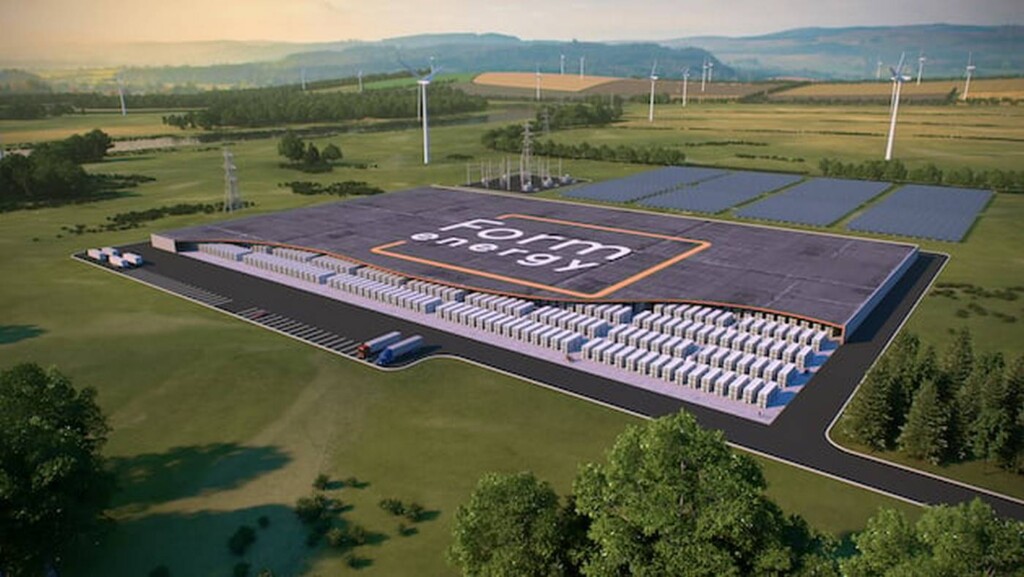 Artistic rendering to promote Form Energy’s battery tech. The company has also received DOE demonstration project funding elsewhere -credit Form Energy, released to the media.
Artistic rendering to promote Form Energy’s battery tech. The company has also received DOE demonstration project funding elsewhere -credit Form Energy, released to the media.In northern Maine, a company is planning the largest battery ever made by humans with 8,500 megawatt-hours of storage.
The purpose is to store renewable energy like solar and wind, produced but not needed, for times when the Sun isn’t shining and the wind isn’t blowing.
The batteries store and discharge energy via a novel process called “reverse rusting.” Inside the battery is iron, and as the battery stores electricity, it takes in oxygen from the air turning the iron inside into iron oxide—or rust. When it discharges, the oxygen is released and the oxide is removed, leaving the iron pure again.
While unusable for everyday electronics, this method works at scale and is around one-tenth of the running and manufacturing costs of using lithium-ion batteries.
Form Energy, the firm behind the project, received over $380 million in grants from the Department of Energy for projects all over the North Atlantic, of which $147 will go to the Maine battery project.
With 8,500 megawatt-hours of power at maximum capacity, the battery bank could power up to 85,000 homes for 100 hours. The battery system will have the most energy capacity of any announced in the world, Mateo Jaramillo, CEO and co-founder of Form Energy, said in a statement.
The amount of power it contains would allow an electric car to circumnavigate the world 1,288 times. The batteries stand 3 feet tall, are about the size of a side-by-side washer-dryer unit, and 50 will make them the station, according to Live Science. World’s Largest Battery to Revolutionize Renewable Energy Storage in Maine with ‘Reverse Rusting
2024-09-13T13:59:00+05:30
